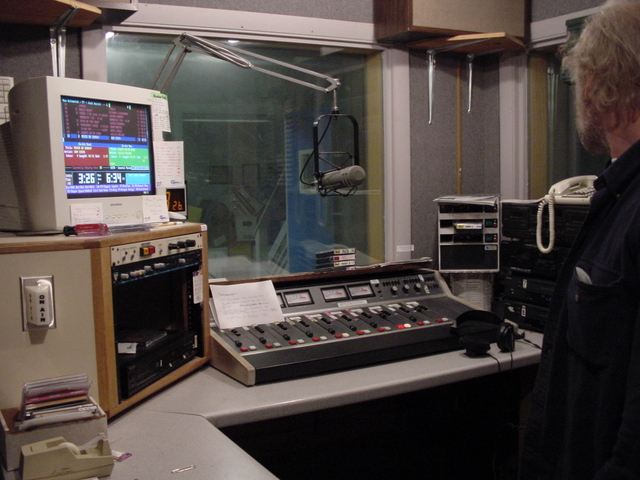What can tiny media companies do that corporate media cannot? I didn’t know Bob Bittner, but an obituary by Scott Fybush of the WJTO operator shows how a deep passion for broadcasting and a hands-on approach let him accomplish a lot:
- Experiments with new tech
- Trying out different formats
- Investments in platforms or assets that others considered to have little value
- Atypical business models
He was a pioneer in automated programming and crowdfunding before either became widely known, and rescued small stations and radio call signs across New England, including WJIB (a former easy listening station in the Boston area) and WJTO in Bath, Maine. Boston Radio toured the studios and transmitters in 2005 and posted many photos and details of the operation:

Importantly, he was focused on community in an authentic way that corporate media seldom does right. And people responded:
As his listeners soon learned, with no board of directors to oversee him or any debt to carry, Bob was able used his one-man radio stations for more than just playing his music collection. With no desire or any real need to sell commercials, he turned to listener support. His annual appeals raised tens of thousands of dollars in small donations from a passionate base of fans, all sent by check to his post office box in Maine. With no need to please advertisers, he was free to share his own views during station announcements, including a long-running crusade against credit cards and a disdain for big business.
Anyone who has worked in indie media will recognize this type of operation. I’ve personally seen it in indie publishing as well indie music labels – including KLF Communications, one of the most dynamic indie music labels where I worked in the early 1990s. It’s a mix of creativity, entrepreneurial spirit, and a willingness to be hands-on when necessary … or just because that’s the way you want to do it!
There’s also an element of stubbornness or jaded sensibilities, which often comes from long experience dealing with people that don’t get it, or institutions that exert too much control (fellow indie publishers will understand this quite well!)
It’s also important to note what Bob Bittner didn’t do at WJTO:
He played exactly what he felt like playing, from deep in the organized clutter that filled room after room at WJTO, and if he didn’t want to do something, he simply didn’t. His stations never streamed, and for years he wouldn’t play anything by Bob Dylan, not because he didn’t like Dylan but because he didn’t want to pay royalties to SESAC.
Rest in peace, Bob.
